Four years ago, when the heavy period bleeding which I’d had since adolescence suddenly became much worse, I never would have predicted that the cause of the bleeding would not be correctly diagnosed and treated until after I’d had an unnecessary surgery, a preventable major complication of another surgery, months of severe anemia and more. And yet many women may be at risk for similar problems without realizing it.
Heavy period bleeding (medically called menorrhagia) is a very common problem in women of reproductive age, affecting up to 30 percent of women. This type of bleeding can be very debilitating and difficult to deal with, as well as posing a diagnostic challenge for doctors to identify the underlying cause.
There are many possible causes of menorrhagia, including hormonal imbalances and dysfunction of the ovaries, fibroids, uterine polyps, adenomyosis, intrauterine devices (IUDs), and in rare cases, cancers of the reproductive system. One cause that is not often considered is a bleeding disorder. Up to 20 percent of women with menorrhagia may have von Willebrand’s disease, which is the most common of the so-called “mild” bleeding disorders (which include any bleeding disorder not classified as a severe hemophilia). The number of women with menorrhagia who have an undiagnosed bleeding disorder is even higher when platelet function disorders, another type of “mild” bleeding disorder, are included.
Studies have shown that gynecologists are not likely to consider a bleeding disorder as a possible cause when investigating menorrhagia, and are not likely to refer women with heavy period bleeding to a hematologist for further investigation, even when gynecological causes are ruled out. One study found that only four percent of physicians surveyed would consider von Willebrand’s disease as a possible diagnosis in women with menorrhagia, and only 3 percent of physicians would refer patients to a specialist.
Studies have also shown that women with undiagnosed bleeding disorders are more likely to be subjected to unnecessary surgical procedures, including hysterectomy, as a “fix” for the bleeding that doesn’t address the underlying problem. Menorrhagia is the major reason for approximately 300,000 hysterectomies per year in the U.S. Given the prevalence of undiagnosed bleeding disorders in this population, 60,000 or more hysterectomies per year could be performed in women whose menorrhagia could be addressed with treatment for their bleeding disorder instead of a major surgery. Women with von Willebrand’s disease are more likely to undergo a hysterectomy (26 percent of women with von Willebrand’s disease, compared to 9 percent of women in the control group) and to have the hysterectomy at a younger age.
In addition, undiagnosed bleeding disorders have a serious effect on women’s quality of life, and put women at risk for medical complications. Although women who have not experienced it, or men, who of course cannot experience it, may dismiss heavy period bleeding as simply a nuisance, it is far more than that. It can cause serious problems such as anemia, complications from childbirth and surgical procedures, lost work or school time, lifestyle issues, psychological disruptions, and have major effects on quality of life. The health-related quality of life for women with menorrhagia and a bleeding disorder was studied and found to be similar to that of HIV-positive men with severe hemophilia, underscoring the difficult symptoms and lifestyle issues that can result from these problems.
My own medical history reads like a clinical case study designed to educate doctors about the possible pitfalls of undiagnosed bleeding disorders, and judging by the numbers, there are many more women out there going through the same thing. After my son was born, the menorrhagia I’d had since I was a teenager worsened significantly. I had gynecological causes ruled out—no polyps, fibroids, or cancer. I already had been diagnosed with endometriosis, but that was not thought to be the cause of the bleeding. My gynecologist deemed the cause to be “hormonal” and spent two years trying to fix it with birth control pills, which didn’t work. At some point during those two years I asked for a referral to a hematologist, which I was told I didn’t need after a few preliminary blood clotting tests came back normal. I had an endometrial ablation, which also didn’t work, and caused my pelvic pain to worsen so severely that my first period after the ablation landed me in the ER (increased pelvic pain is a known risk with endometrial ablation).
I had enough of a history the first time I asked to warrant a referral. My history at that time included bleeding complications with my first laparoscopy for endometriosis, history of heavy periods with gynecological causes ruled out, easy bruising and bleeding gums. However, it took four more years of suffering with the symptoms of anemia, low ferritin, and heavy periods, one unnecessary surgical procedure (the ablation), and a preventable surgical complication that required a subsequent surgery (I had a major internal hemorrhage after excision surgery for endometriosis and removal of my left ovary and tube) and three more requests for hematology referrals, before I was finally referred to a hematologist and ultimately diagnosed with a bleeding disorder. And some studies show that the diagnostic delay from onset of bleeding symptoms can be up to 16 years! It is time for this to change. Gynecologists need to consider the possibility of bleeding disorders, and work with hematologists when appropriate, when trying to diagnose the underlying causes of menorrhagia.
We Need Your Help
More people than ever are reading Hormones Matter, a testament to the need for independent voices in health and medicine. We are not funded and accept limited advertising. Unlike many health sites, we don’t force you to purchase a subscription. We believe health information should be open to all. If you read Hormones Matter, like it, please help support it. Contribute now.
Yes, I would like to support Hormones Matter.



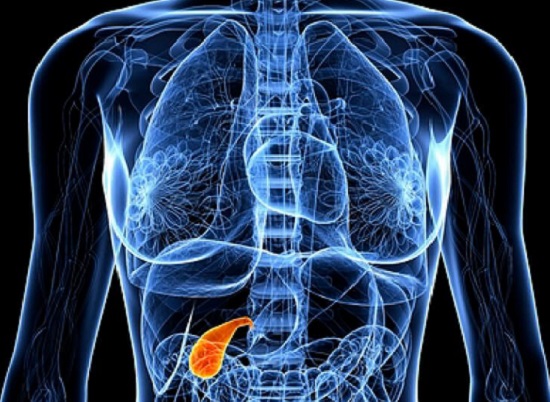


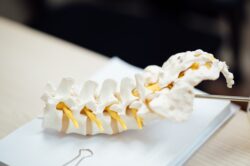
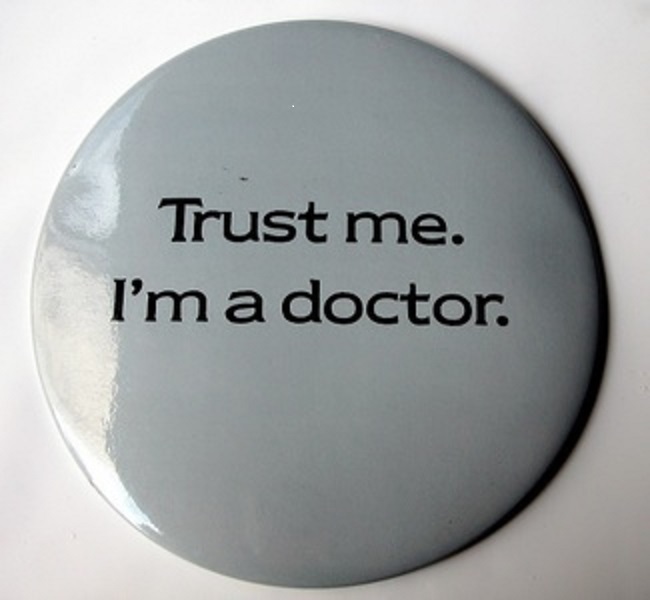



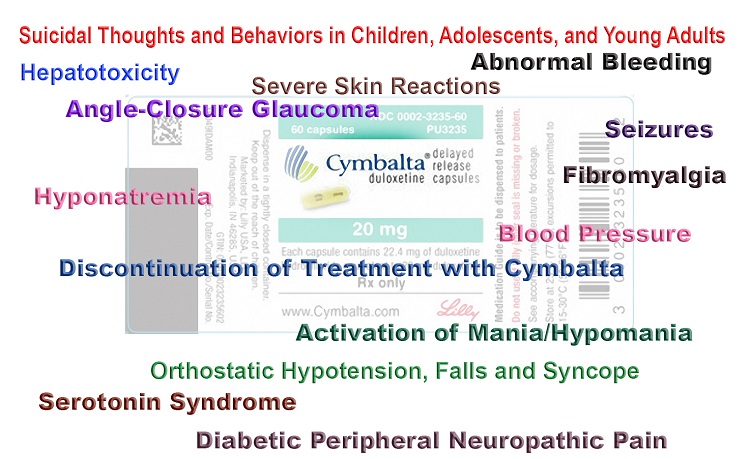

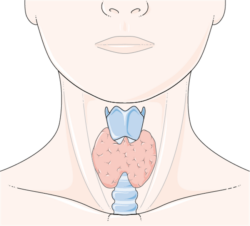


In 2011 I went to a gyn/ob for heavy bleeding. Without any testing she said you need a hysterectomy. I said that seemed extreme and isn’t it a hormonal issue? She said no it’s not hormonal and said I needed an ablation. When I hesitated she says “ half the women in Huntsville have had ablations”, your hesitation is due to the fact that you lost a baby! I had the ablation and after that and my periods stopped.
I have the very rare type II bleeding disorder that affects only about 100-200 Americans. 13 of them are in my family. 32 years ago, I began collecting a list of things that increase bleeding and things that reduce bleeding. It all comes down to vitamins, minerals, and a few herbs and medicines to avoid. I have found that it works for everyone, because even people who do not have bleeding disorders clot better when they do the right things. Far less bruising after surgery is typical. I also helped heal my wife of her heavy periods. It took her about 6 months, in part, due to not following the list very well, and we found we had to modify the list to include calcium and iron. Heavy bleeding depletes iron, leads to low red blood cells, which are needed to stop bleeding. Iron alone does not work, it needs vitamin C for absorbption, B12 and copper to turn the iron into good red blood cells. Fortunately, with adequate iron, and with iron’s co nutrients just listed, the body will make more red blood cells about 10 times faster than can be lost with a very heavy period. Here is my list: https://revealingfraud.com/2020/05/health/how-to-stop-and-prevent-bleeding-bruising-and-nosebleeds/
I have read many articles about medical cannabis and how it can help you in terms of chronic pain, bone injuries, eating disorder/anorexia, anxiety disorders and panic attacks, inflammation, even cancer and a lot more. Like this article http://www.ilovegrowingmarijuana.com/faygo-red-pop/. Cbd and thc are also new to me and I don’t even smoke. Alternatively, they’ve also found new ways to infuse cannabis on food and beverages. If this is true I can’t find any solid conclusive evidence that speaks to its efficacy. Any personal experience or testimonial would be highly appreciated. Thanks
Hi there,
I am from India and my mom is currently suffering from heavy bleeding and clotting in addition to prolonged periods. They are so bad that my mom is not able to do any sort of work. It’s like all her energy gets drained out with every clot (pretty big in size) that come out of her body. Recently, her periods started on 1st April and are still going on (she started taking pills a couple of days ago to stop them because it was very difficult for her to do any sort of work and it was getting worse. Now, she’s fine and there’s no heavy bleeding). My mom has had thyroid and this heavy bleeding problem since childhood. She couldn’t go to school when she used to be on her periods. Now, my mum has decided to go through a surgery to get rid of it which includes total removal of the uterus (as suggested by her gynaecologist). Can you tell me the possible cause behind this problem and how it can be prevented other than the surgery I just mentioned above.
Thank you,
Mansi Bhatia
Hi Mansi,
The correct treatment will depend on the cause, and many causes can be treated without a hysterectomy. There are several gynecological problems that can cause heavy bleeding such as fibroids or adenomyosis. Fibroids would be less likely as they usually develop later in life, and you mentioned that your mom has had problems since childhood. A good gynecological workup can help identify whether there is a problem there, although adenomyosis can be difficult to diagnose. Does your mom also have painful periods?
If a gynecological workup does not reveal a problem, it may be helpful to see a hematologist to have them check for a bleeding disorder. There is bloodwork that can help identify a bleeding disorder, and also her clinical history of bleeding–does she bruise easily, bleed with dental work, get nosebleeds? Has she ever had surgery and did she have excessive bleeding? This is something you would want to investigate before any potential surgery.
Hope this helps,
Philippa
How do we push research further on this? I almost died of a hemorrhage that occurred after my second pregnancy, exactly 2 weeks postpartum. So did my mother and her mother. Nobody asked about other bleeding issues and there was no placental, retention for any of us, so they had no explanation for my mom and grandmother and offered a diagnosis of “atonic uterus”for me. Years later, they couldn’t stop the bleeding during minor surgery I had. Finally referred to a hematologist, I was told I had Von Willebrand based on family history and clinical symptoms. I was told it was hard to get conclusive bloodworm on it but genetic tests would be conclusive, but were expensive so I accepted the diagnosis. I recently learned that the symptoms of VWD are also indicative of other, more rare bleeding disorders. So, I uploaded my genetic info to a database that references the SNPs with the research on them and I don’t appear to have a single genetic indicator of any of the bleeding disorders in the database, including Von Willebrands, which is well-represented. (Not all bleeding disorders are represented in the database though.) I always had heavy periods and was often anemic, have had nosebleeds the whole thing. But I went through a long period of my life with no problems at all. Then I noticed is that my bleeding problems really started to manifest themselves when perimenopause started. I’ve had several more bleeding episodes in the 10 years since I was (wrongly) diagnosed with VWD, but now it’s clear that whatever is going on with me and my clotting issues, it’s directly related to my estradiol levels. If I keep going hard with the transdermal E2 and keep my levels up, my blood clots. As soon as the level drops, I stop clotting. There’s clearly a genetic component to this and it’s related to estradiol, which we already know affects clotting. I want to connect the dots and find out what SNPs relate to this so my daughter, nieces and the generations that follow don’t have to go through what I and my predecessors have. Any suggestions on who I should contact to investigate this? I’d love to help get to the bottom of it.
Lisa, your case and family history are fascinating and represent so many of problems in women’s health research – mainly that these issues are ignored and we know very little. Would you be interested in sharing your case story more formally as a blog post? It’s through women like you who are willing to share that we discover the underpinnings of these disorders. Other women, once they see your post would likely comment, as would researchers. Let us know if this interests you. You can reach us via this link. https://www.hormonesmatter.com/write-for-hormones-matter/
Hi Lisa,
Have you ever had testing for platelet disorders? THat type of testing is difficult to do, and most hospitals don’t do it. You would need to find a pretty specialized hematologist. I am part of a Facebook group called Women with Bleeding Disorders. I suggest that you join it if you are on Facebook because the women in that group are extremely knowledgeable, and you may be able to find someone who can recommend a better hematologist in your area. Diagnosing VWD based on clinical history and family history doesn’t sound right to me–those things can certainly be suggestive of a bleeding disorder, but not specifically VWD. The estradiol effect may not be specifically related to what your bleeding problem is–coagulation is a complex pathway that involves the vessel wall, platelets, and clotting factors. Estradiol increases the clotting factors, but that may just help compensate for a defect in another part of the pathway. Some platelet disorders are very rare, and about 30% are undefined (meaning that the genes/proteins involved aren’t known and therefore no SNPs would be identified). Going at it from a genetic testing point of view might not provide you with answers. A good hematologist who really specializes in bleeding disorders rather than someone who does hematology/oncology, or thrombosis, is your best bet at finding answers.
Beckie, thank goodness your doctor figured that out. Did you have the characteristic rash of ITP? I hope you are doing well now.
I had very heavy periods. I thought it was hormonal changes because I was 42, It turned out to be ITP, my Ob/gyn pretty much saved my life.
Lisbeth, I am sorry to hear about your trip to the ER. I hope they were able to do something to help you? Although I know from experience that many times the ER is just useless. I am glad to hear the information may help you…I hope you get everything figured out.
I read this article two days ago … then went to the ER from heavy bleeding yesterday! Of course this isn’t the first time this has happened …
Thank you so much for this information, I’m printing this article and comments out and taking it to my doctor as soon as I can get in for a follow up after my trip to the hospital. My sister was diagnosed with a blood clotting disorder after 2 miscarriages last year, so hopefully armed with this much information I can get some treatment other than the band-aid of birth control (which I refuse to take and lose all interest and compassion from doctors). This information is SO important for women to know, thank you!!!
WS, I am sorry about what happened to you. Saying that it is unfair doesn’t even scratch the surface.
It is really important to have a hematologist involved if bleeding disorder is suspected. Unfortunately the gyns don’t always agree!
Thank you for this excellent article! I’m sorry that you were undiagnosed and harmed as a result. I too have been harmed by a gynecologist. My story can be found on this website, along with two other articles (one about chronic pelvic pain post-ablation).
Women are too often led to hysterectomy for heavy bleeding. I’ve suggested to many women on a number of forums that they have testing done for clotting/bleeding disorders but didn’t realize that oftentimes a full battery of tests isn’t done.
The paper “Women and Bleeding Disorders” referenced in my article describes a short screening tool of 4 questions that have an 82% sensitivity for bleeding disorders if any one of the 4 criteria are met. Sometimes no abnormalities can be identified even with extensive investigation, but the clinical history of the patient is significant enough to warrant treatment as if the patient has a bleeding disorder (which they probably do, it’s just something that current tests don’t detect).
I am trying to find the paper that you referenced and the four questions. I just read your info on low ferritin and I’m so thankful to have found that and this. when I ask doctors if low ferritin can cause symptoms similar to anemia, they never know. four years ago I went to the er and was diagnosed with severe anemia (hgb 5.1) and needed two units of blood. currently my iron has been fine but my ferritin is very low (5). my mom wants me to see a hematologist and I am going to try to ask for a referral. I have two fibroids but I’m not convinced they’re the full cause of my heavy bleeding. the first one was said to be tiny and found just after the anemia diagnosis. but the bleeding has been heavy for a few years before that (after going off of the pill). the gynecologist wants me to go back on the pill but I really would prefer not to. my options seem limited.
This is the paper that I referenced: http://www.ncbi.nlm.nih.gov/pubmed/20590876. And the 4 question screening tool is:
1. Duration of menses greater than or equal to 7 days and flooding or impairment of daily activities with most periods.
2. History of treatment of anaemia.
3. Family history of a diagnosed bleeding disorder.
4. History of excessive bleeding with tooth extraction, delivery or miscarriage or surgery.
I would agree that you need to see a hematologist, at the very least, for more aggressive treatment of the anemia. You can also have minimally invasive surgery to remove the fibroids, and you may want to consider this, because if they get too large you run the risk of needing to get them removed with more extensive surgery. Lysteda (an oral medication for heavy menstrual bleeding) is also fairly effective, and you can use it whether you have fibroids or not, and it still helps the bleeding.
Bleeding disorders (despite genetics) are very sensitive to diet and the foods we eat (search internet for “natural blood thinners”). Make sure to avoid those foods and have your doctor (preferable a Functional Medicine specialist) check and balance your hormones. (Thanks Philippa for your blog, very helpful for people suffering from hormone imbalances). Dr. Adonis
Very true. Thank you for this comment. I have to be very careful with what I eat and the supplements that I take, not to exacerbate my bleeding problems.
Hi Dr. Maiquez. Thank you for your comment. The basic tests would include CBC, levels of clotting factors (factor II, V, VII, VIII and X), fibrinogen, INR, PTT, and VWB factor levels. However, all of these tests can be normal and the patient can still have a bleeding disorder. Note that these tests only address platelet levels (in the CBC) and not platelet function. In disorders of platelet function the levels can be normal. Platelet function tests would include tests of how the platelets aggregate in response to agents such as ADP, epinephrine, ristocetin, and collagen. These tests can be abnormal in patients on NSAIDs or other drugs so patients need to be off these drugs before the tests are done to get a true result. In addition, VWB disease is notoriously hard to diagnose and sometimes requires tests of VWB factor activity in addition to VWB levels. Even the levels can fluctuate in an individual, so sometimes repeat testing can be informative. I would recommend consultation with a hematologist for patients with suspected bleeding disorders since the testing and interpretation of results can be complex.
Amazing report Philippa. Thanks Chandler for sharing it in LinkedIn. I totally agree. I see patients all the time post-ablation, OCP/IUDs, even hysterectomy for “heavy bleeding” when it could have been improved with bio-identical hormones or maybe addressing the bleeding disorder. What are the basic tests you would recommend in a woman with menorrhagia to look for bleeding disorders (VWB, platelet disorder or others)?